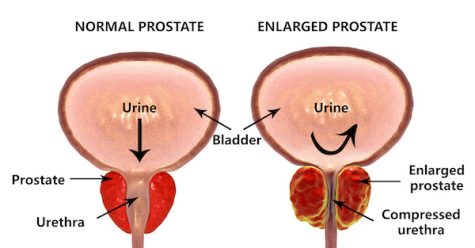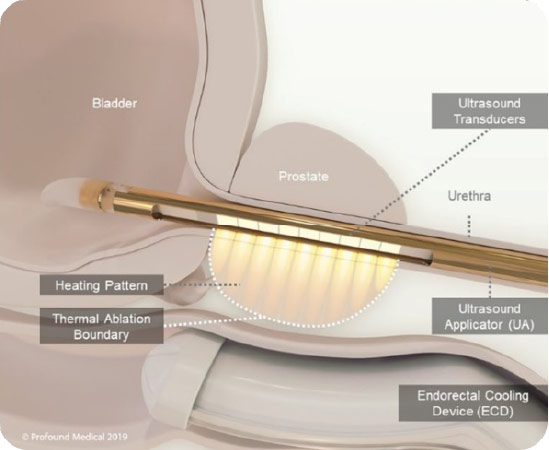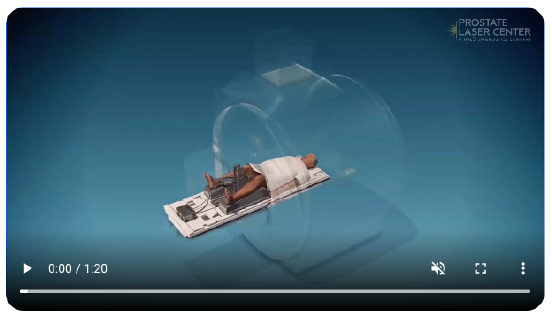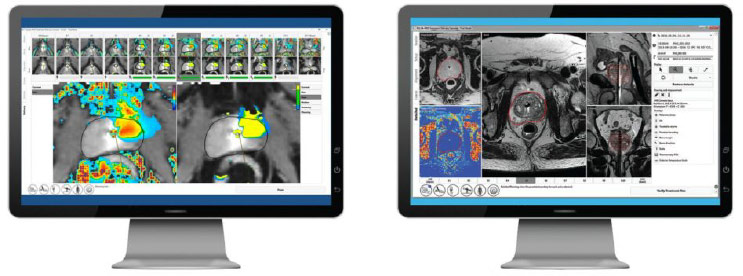TULSA Procedure for BPH: Transurethral Ultrasound Ablation (TULSA-PRO)
Tulsa Procedure for BPH: Broader than Focal, Less than Total
Benign prostatic hyperplasia (BPH), also called an enlarged prostate, can cause a variety of urinary symptoms that significantly impact overall quality of life. Untreated BPH can also cause more serious issues, such as bladder stones and kidney damage. Addressing BPH can help to mitigate or eliminate those symptoms and risks.
It’s crucial to consult with a physician about treating BPH at the individual level. However, learning more about BPH treatment options can help you make a more informed decision about your health.
A transurethral ultrasound ablation procedure (TULSA-PRO) can more easily cover a wider area than laser focal therapy (LFT) / focal laser ablation (FLA). This BPH ultrasound procedure can precisely target areas of excess growth in the prostate while also protecting nearby healthy tissue. As a minimally invasive procedure, there are no incisions or radiation.
For patients who have a relatively larger prostate, ultrasound for BPH can be an effective treatment option. TULSA-PRO can cover a larger area while still providing the control and protection of real-time thermal feedback also offered by LFT/FLA. 3T MRI and robotically driven directional thermal ultrasound energy enable subtotal and targeted prostate gland ablation.
Minimally invasive TULSA-PRO treatment is offered by experienced physicians at the Prostate Laser Center (a HALO Diagnostics Company).
Key Qualities of the TULSA Procedure for BPH
Real-Time Imaging
Directional Thermal Ultrasound
Closed-Loop Temperature Feedback
that allows the doctor to tailor the ablation to each patient.
The boundary lines and volume-to-be-ablated are mapped first. Then, the ablation process is computer controlled with near-instantaneous temperature feedback. The procedure is performed with high-intensity directional ultrasound to ablate tissue in a controlled manner.
TULSA-PRO for BPH
BPH is not prostate cancer. However, minimally invasive treatments for prostate cancer such as LFT and TULSA-PRO have proven to successfully treat BPH with no incisions or radiation. The risk of LFT and TULSA-PRO side effects is also lower than other, more invasive treatments.
TULSA-PRO is an effective option for men with BPH as it destroys enlarged prostate tissue while avoiding damaging vital structures surrounding the prostate. Because TULSA-PRO is an inside-out procedure, and the distance from the urethra to the prostate is shorter, more energy can be focused on the enlarged tissue surrounding the urethra.
TULSA-PRO, like LFT/FLA, is a minimally invasive treatment. The procedure is completed in one treatment session and performed under general anesthesia.

Individualized Elements and Personalized Treatment
After the placement of the device and initial MRI scanning, the physician enters a treatment plan. The TULSA-PRO system then individually controls ten separate elements, allowing for broad tissue destruction while fine-tuning each treatment area. This is all performed under the watchful eye of the physician, who can make adjustments as appropriate.
An endorectal cooling system protects the rectum, which is inserted after the patient is placed under general anesthesia. Near-instantaneous temperature feedback also helps to protect healthy tissue outside of the target areas for ablation.

Advantages of Treating BPH with TULSA-PRO
What makes TULSA-PRO stand out among a range of potential treatment options for BPH?
Minimally Invasive
Same-Day Outpatient Procedure
No Incisions
Precision-Focused
Personalized Treatment Plans
Advanced Image Guidance
TULSA-PRO is used to treat BPH similarly to its use in treating prostate cancer. Learn more about TULSA-PRO for prostate cancer.
How Dr. Karamanian Performs the TULSA Procedure for BPH
The TULSA procedure (TULSA-PRO) ablates prostate tissue from the inside out. A device enters the urethra. This device delivers thermal ultrasound energy outwards from the urethra to the prostate while under real-time MRI guidance.
This approach avoids the need for surgical incisions to reach the prostate. A cooling mechanism helps protect the urethra from the ultrasound energy. The thermal ultrasound energy is delivered in a sweeping motion (visualize a clock hand sweeping), which enables the physician to ablate a wider area.


TULSA-PRO produces real-time temperature maps, enabling the physician to see the increasing temperature of the prostate tissue and surrounding structures every 5-7 seconds during treatment. This visibility allows the physician to actively monitor tissue heating and better protect healthy tissue during the procedure.
Frequently Asked Questions About the Tulsa Procedure for BPH
Generally, yes. The physician can customize the procedure to ablate specific areas of the prostate based on the patient’s needs.
Patients interested in the TULSA procedure must be screened by an MRI professional (technologist or radiologist) before entering the MRI suite. Whether a patient qualifies for the TULSA procedure will be determined by a physician.
What to Expect
Transurethral Ultrasound Ablation for BPH

